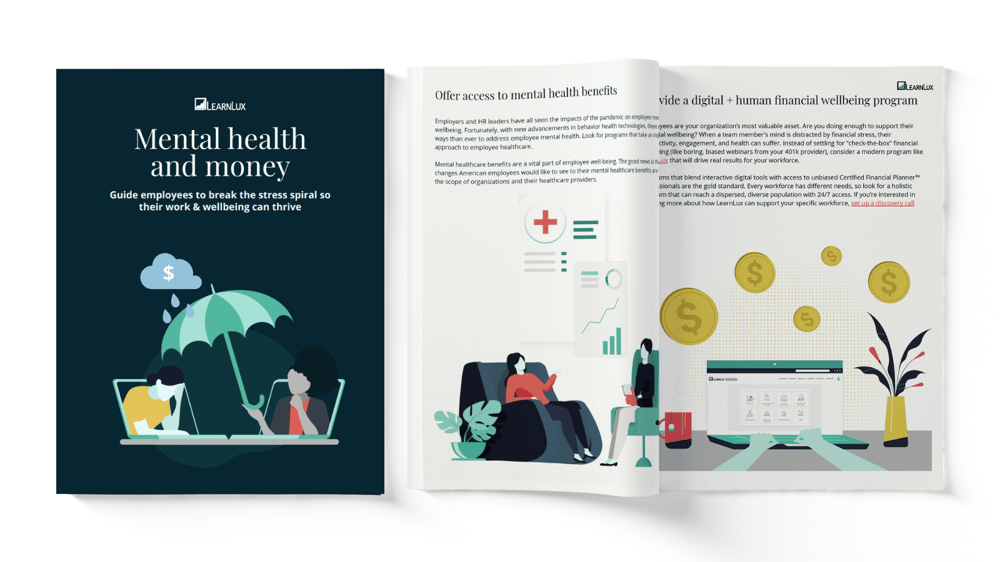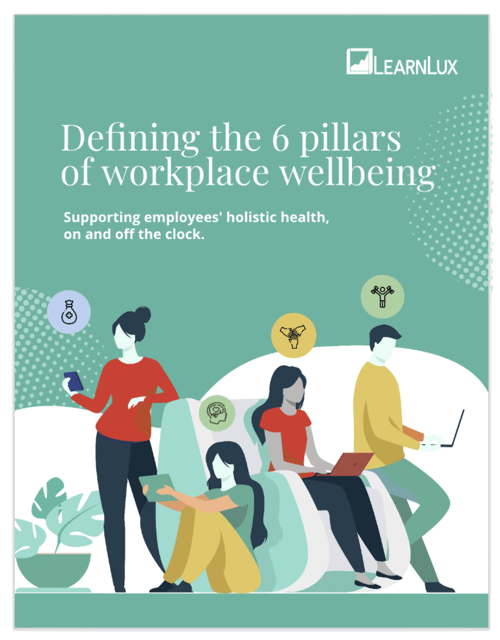Employees' worries about money weigh heavily on their minds, bodies, and wallets. New survey findings reveal that financial stress has significant impacts on both mental and physical wellbeing. As a result, workplaces are taking action.
Recent research from the St. James’s Place Financial Health Report covered by FTAdvisor highlights that nearly 50 percent of adults experienced a decline in overall health due to financial strain in the past year.
Among the most impacted are ages 18 to 34, with 66 percent reporting that their mental and physical health suffered as a result of financial pressures. This demographic, often burdened with consumer debt, student loans, and rising housing expenses, faces a particularly challenging landscape when it comes to managing their financial lives.
For many employees, financial burdens manifest in serious stress and anxiety issues, with 15 percent of survey respondents reporting such symptoms.
It's not just mental health that takes a hit; physical wellbeing is also compromised. The survey reports that 46 percent of individuals attribute physical ailments such as hair loss, weight fluctuations, and premature aging to financial stress. This correlation between financial strain and declining health underscores the urgent need for intervention and support.
In the workplace today, nearly 87 percent of employees admit that concerns around money affect their productivity—a statistic that should sound alarm bells for HR and benefits teams. 21 percent of employees have contemplated taking time off work due to overwhelming financial stress. These stats highlight the significant impact of financial health on workplace efficiency and absenteeism.
Looking ahead, the financial forecast remains uncertain. Households are likely to continue feeling financial strain. In light of these challenges, it's essential for employees to proactively manage their financial situation. HR and benefits teams can play a crucial role in supporting their workforce through these challenges, helping each individual create a trusted financial plan.
Implementing a comprehensive financial wellbeing program can yield significant benefits for both employees and employers alike. By providing resources such as digital tools, interactive education, and access to 1:1 guidance from financial planners, companies can empower their workforce to navigate financial challenges more effectively.
Addressing financial concerns can alleviate stress, reduce healthcare spending, and improve overall employee productivity. The link between financial strain and declining mental and physical health is undeniable.
Now is the best time for HR and benefits teams to prioritize employee financial wellbeing as an integral component of their workplace health initiatives. By taking proactive steps to address financial stress, organizations can create a healthier, more resilient workforce equipped to thrive in today's challenging economic landscape.
-1.png)



